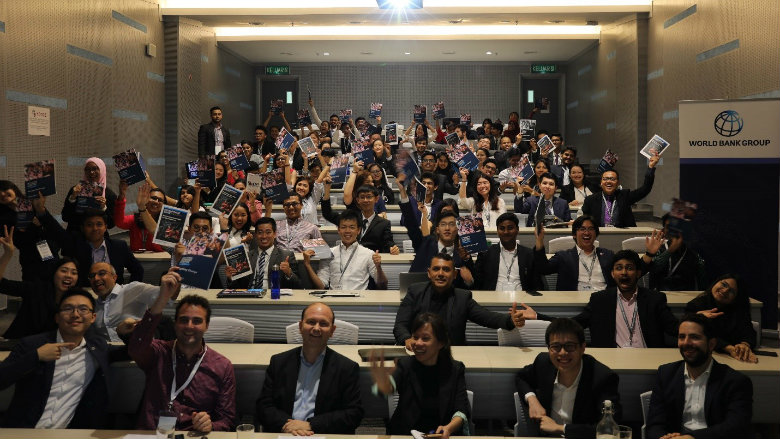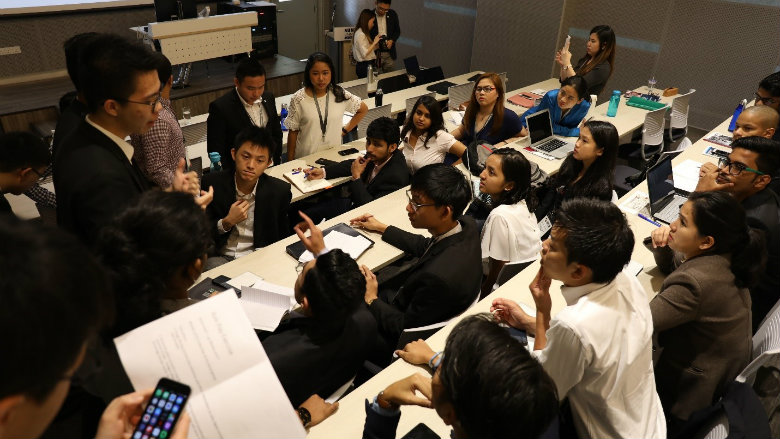As agents of change and progress, the recent celebration of this year’s International Youth Day commemorates the spirit of young people as a force to be reckoned with. In this spirit, participants of the Harvard Project for Asian and International Relations (HPAIR) were put to the task of shaping policy for Malaysia.
Co-hosted by the World Bank Hub in Malaysia, the Impact Challenge was designed for HPAIR participants – who are early-career youth or students from Malaysia and around the world - to try their hand at policymaking. Within two hours, teams came up with policy solutions to address issues in Malaysia’s digital economy, based off the Hub’s flagship report - the Malaysia Economic Monitor.
For 25-year-old Rahul Saxena from India, this was a rare opportunity for youth voices to be heard. “Policies have long-lasting impacts that affect the youth but policymakers rarely include them as a key stakeholder. I believe getting youth on board is important as we have direct connection to the issues at hand, and can form policies that respond to that,” he said. Rahul and his teammates were the winners of the Impact Challenge.
Creating policy solutions for the digital economy, however, is no small matter. As Malaysia works toward crossing the high-income threshold, the digital economy is poised to be one of the key contributing factors for progress.
Malaysians are already one of the most digitally connected societies in the world, and 80% have access to the Internet, mainly through mobile networks. But the country falls behind international comparators in terms of digital adoption by businesses.
Therefore, the winning team worked on a key issue in Malaysia -- making payment transactions digital. For Phoebe Wang, 19, this was a very relevant challenge for her. “In Hong Kong, where I’m from, we still rely heavily on cash to make payments. But when I was overseas, I found out that no one would accept cash. I also discovered then that digital payments were so much easier and convenient! It’s great that I get the opportunity to try creating policies for issues directly affecting our lives,” she said.



